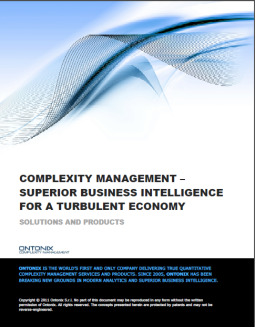Leadership urgently required: Sustainable value or race to the bottom?
Wednesday, 23 March, 2011 Leave a comment
I make no apologies for promoting the thoughts and text of someone, whose thinking (on a wide range of financial matters) I have come to respect enormously. Nick’s article (below) reminded me that, if all we do is look address what we observe – treating symptoms – we can expend too much time, effort and money applying patches or plasters (in the form of legislation, regulation, processes) without actually EVER identifying and tackling cause(s). Add a time horizon of years or even decades and the ability of a system to perform the task(s) for which it was originally intended…
 Is this how successive Governments have allowed the Public Sector to become excessively complex: structurally fragile, morally and financially bankrupt, monuments to institutional neglect?
Is this how successive Governments have allowed the Public Sector to become excessively complex: structurally fragile, morally and financially bankrupt, monuments to institutional neglect?
– why “users” and frontline services suffer in the face of budget cuts whilst layers of management indulge in self-preservation?
Is this why Corporate rewards that are results-driven rather than strategy-led have increased moral hazard?
Why Financial Regulation failed and is “too complex” to pursue those responsible – but not, apparently, accountable – for destroying the global economy?
Gresham’s law states that good money gets pushed out by bad in banking, just like in insurance. Banking and insurance are commodity games. When risk adjusted rates become un-economical due to competitive pressures a participant has one of two choices, sit on the side-lines or drop risk standards. Few like to sit on the side-lines and many who do find their boards don’t and so they dance taking significant risks.
Over time this process means that in a particular time the bad money crowds out the good money in terms of market share. This is Gresham’s law an important process to consider and be aware of. The opposite effect occurs in goods and services markets where typically the better value via pricing power pushes out the weaker offerings to the benefit of consumer and offerer alike.
The other important behavioural factor that drives a competitive process in banking is moral hazard, which effectively encourages individuals to take on too much risk, knowing they will be bailed out. Moral hazard, means you can do whatever you want, because someone will always bail you out.
via Can You Spot the Bailout Barrier in the JP Morgan, Bank of America Options Prices? – Seeking Alpha.
![Perception v Reality_thumb[3] Chicken or egg?](https://fitforrandomness.wordpress.com/wp-content/uploads/2011/03/perception-v-reality_thumb3_thumb.png?w=559&h=307)











